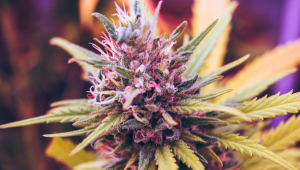What is Cannabis Dependence?

- 1. The human body doesn’t crave for cannabis
- 2. What is cannabis dependence?
- 3. Who can develop cannabis dependence?
- 4. How to avoid cannabis dependence?
Unfortunately, cannabis has a bad reputation in regards to its addictiveness. In fact, this plant has been wrapped in myths for quite some time. Due to the negative impressions, many associate cannabis with the biggest dangers of addiction. Obviously, our stance is quite clear. These are just unfounded myths.
At the same time, we cannot simply say that cannabis doesn’t have its risks. Cannabis does have the properties to devolve into addiction, however, there have been no reports made about any casualties due to its consumption. But, as in the case of any excesses, chances are that it will cause you harm at some point.
Too much water, too many sweets, too many glasses, it’s clear that the consequences will appear. But it also depends on each person’s inclination. So, what’s the deal with cannabis addiction and what can happen if you smoke it sometimes? Let’s see:
The human body doesn’t crave for cannabis
Generally, there’s an assumption that smoking makes you an addict. And it’s true if we’re talking about cigarettes. Due to the nicotine content in cigarettes, we are prone to crave it more often. For experienced smokers, the body can even have a physical response when nicotine is lacking.

On the other hand, cannabis is not a craving. Actually, the same cannabinoids found in the cannabis plant are present in the human body naturally. For example, the endocannabinoid anandamide which is produced in the brain is almost identical to the THC produced by the cannabis plant.
There have been studies conducted on the effects of addictive substances and the results were quite interesting. Cannabis dependence happens when you start using it even when you don’t need it.
| Substance | Alcohol | Cigarettes | Hard drugs | Cannabis |
|---|---|---|---|---|
| Addiction percentage | 22.7% | 67.5% | 20.9% | 8.9% |
The smaller rate of addiction is not to negate the potential of getting addicted to cannabis. In fact, it shows that many can start depending on it because they use it as a crutch to relax or to take a break. Luckily, the smaller rates of addiction are much better in comparison with other substances.
What is cannabis dependence?
Although it might be clear by now, it’d be best to define cannabis dependence in simpler words. Due to the atypical way cannabis dependence manifests, many researchers have a hard time coming with a concrete definition.
However, here’s what we can say: Cannabis dependence is defined by the need to rely on marijuana on a daily basis to relieve pain, stress or as a form of treatment. As a rule of thumb, if you cannot go without cannabis for a few days, then you are addicted.

Luckily, cannabis addiction is not as hard on the body and mind if you plan on quitting it. While with other addictive substances you’ll experience strong withdrawal symptoms, the same cannot be said about quitting cannabis.
Cannabis withdrawal is still very real, but not as painful as quitting cigarettes. The body won’t manifest as much as the mind. On a psychological level, you’ll encounter some difficulties.
Who can develop cannabis dependence?
Generally, cannabis dependence happens to those who use it mainly for its recreational properties. Although individuals who use cannabis for medicinal purposes can consume higher quantities and not get addicted, it’s mainly thanks to the CBD content. THC is the source of psychological and psychedelic effects that get users dependent.
In some medical treatments, individuals can consume higher THC content or concentrate like rosin or shatter without getting addicted. That happens due to the controlled environment and dosage. This is not a daily occurrence.

At the same rate, occasional smokers in social interactions or those who micro-dose less than a gram a day are quite safe from getting addicted. But, those who feel the need to smoke a joint every couple of hours might be quite far in the rabbit hole.
Still, even if you consume cannabis on a daily basis for a long time, it might still take up to 10 years to be addicted, even if the signs of dependence will manifest themselves. Studies done on cannabis addiction have shown that most of the consumers who seek help are under 25 years old. This means that many began smoking during their developmental years, when they were much younger, during their teenage years (13 to 14 years old).
Cannabis addiction is closely related to the emotional state and the environment of the users. The study underlines that although there are some clear dependence signs, they are not as harsh in comparison to other substances like alcohol, hard drugs or cigarettes.
How to avoid cannabis dependence?
Cannabis has a plethora of medicinal benefits that are often sought by those who suffer from anxiety, headaches and chronic pain. Oftentimes, it’s quite hard to find a good reason to give up the amount of relief it can provide. However, if it becomes an indispensable daily habit, then we’re talking about a cannabis dependence.
If you want to get around the possibility of getting addicted, then consider a tolerance break. This means that after years of continuous smoking, your body might have gotten used to it. Once you’re used to it, you might look into trying stronger strain more often.
Taking a short 15-days break is a great way to rediscover the beauty of cannabis. During this time, the THC levels in your body will lower and the experience will be much improved. Moreover, this small break is a great way to keep addiction at bay.












Comments